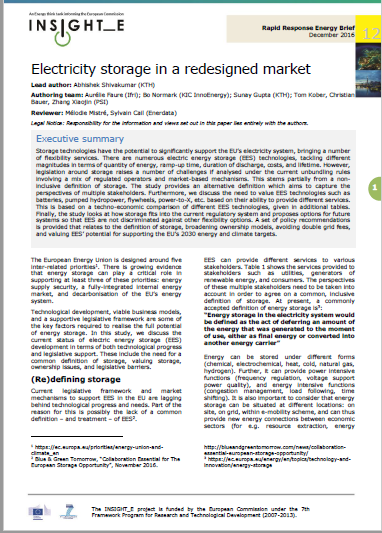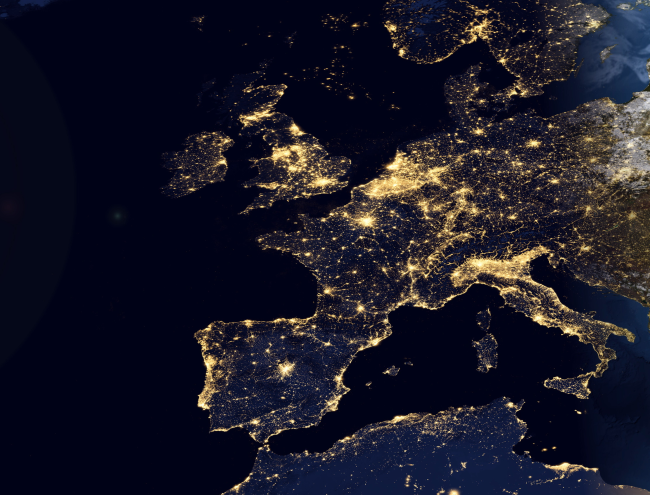Electricity storage in a redesigned market

Storage technologies have the potential to significantly support the EU’s electricity system, bringing a number of flexibility services. There are numerous electric energy storage (EES) technologies, tackling different magnitudes in terms of quantity of energy, ramp-up time, duration of discharge, costs, and lifetime.

However, legislation around storage raises a number of challenges if analysed under the current unbundling rules involving a mix of regulated operators and market-based mechanisms. This stems partially from a non-inclusive definition of storage. The study provides an alternative definition which aims to capture the perspectives of multiple stakeholders. Furthermore, we discuss the need to value EES technologies such as batteries, pumped hydropower, flywheels, power-to-X, etc. based on their ability to provide different services. This is based on a techno-economic comparison of different EES technologies, given in additional tables. Finally, the study looks at how storage fits into the current regulatory system and proposes options for future systems so that EES are not discriminated against other flexibility options. A set of policy recommendations is provided that relates to the definition of storage, broadening ownership models, avoiding double grid fees, and valuing EES’ potential for supporting the EU’s 2030 energy and climate targets.

Available in:
Regions and themes
Share
Download the full analysis
This page contains only a summary of our work. If you would like to have access to all the information from our research on the subject, you can download the full version in PDF format.
Electricity storage in a redesigned market
Related centers and programs
Discover our other research centers and programsFind out more
Discover all our analysesBrazil One Year Away from the October 2026 General Elections
Brazil’s general elections will be held on October 4, 2026, to elect the president, vice-president, members of the National Congress, governors, deputy governors and state legislative assemblies. For the presidential and gubernatorial elections, a second round will be held on October 25 if no candidate obtains a majority of the votes in the first round.
COP30: An Inflection Point for Climate Action and Governance
The 30th Conference of the Parties (COP30), opening in Belém, Brazil, on November 10th 2025, convenes at a perilous moment.
The Strategic Dimension of Skills in the Clean Industrial Deal
In the competitiveness and energy transition battles, the European Union (EU) must master a determinant factor: skills.
The Energy Transition Faces Geopolitical Challenges. How Can Ideological Divides Be Overcome?
President Trump’s positions and policies, combined with record coal consumption and booming global electricity demand, geo-economic confrontation, and widespread concerns about energy security, are changing the game when it comes to understanding realistic decarbonization trajectories. The war in Europe is intensifying competition between defense and transition budgets. This is also the case elsewhere in the world.









